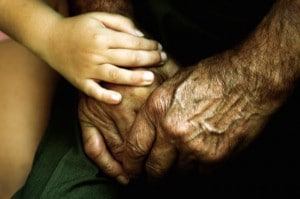With the passage of Proposition 47 comes the realization that the tough-on-crime stance that was so popular during the Clinton presidencies of the 90s has been replaced by a softer, more empathetic tone towards those who have committed crimes.

Hemorrhaging state budgets are certainly a partial the cause of this movement as governments struggle to balance their budgets, but it seems that there are deeper cultural factors at work, too. Perhaps people have realized, as a result of smash hit TV shows like Netflix’s “Orange is the New Black,” that criminals are still people, and there are always so many factors at work when a crime is committed. The show and others like it show the human side of prisoners—and help many empathize with their predicaments. More empathy often equals positive change in terms of deep societal issues, as evidenced by the passage of Proposition 47.
What about the children? Suddenly, empathizing with those affected by harsh prison sentences becomes easy when children are brought to mind. According to Pew Research, 2.7 million children—that’s 1 in 28 American children (3.6%)—currently have an incarcerated parent. What’s even more mind-blowing is that the number of parents held in state and federal prisons increased by a whopping 79% between 1991 and mid-2007 (http://www.pewresearch.org/fact-tank/2013/06/21/sesame-street-reaches-out-to-2-7-million-american-children-with-an-incarcerated-parent/). Even the ubiquitous childhood program, Sesame Street, published a special video and an online toolkit about having a parent in prison to help kids cope called “Little People, Big Challenges: Incarceration.” http://www.sesamestreet.org/parents/topicsandactivities/toolkits/incarceration
The money that was previously used to incarcerate thousands upon thousands of Californians will now be used to prevent school truancy and dropouts (25%), support mental health services and drug abuse treatments (65%) and victim services (10%). http://www.scpr.org/news/2014/10/17/47466/election-2014-faq-prop-47-criminal-sentencing/ With the majority of the funds going towards mental health services and drug abuse treatments, Californians will be preventing crime from occurring in the first place. Either unstable mental health or substance abuse is a factor in the majority of crimes, and when people are taken care of in this capacity, there will very likely be a decrease in crimes being committed throughout California. Rehabilitation—not isolating criminals for years on end—will bring lasting change and uplift our society as a whole. Healthy citizens are productive ones, so not only will individuals make progress, but their families, friends, church communities—and heck, even the economy will likely improve. Less crime means more people are working, and with more people working, there’s more money to spend, spurring on our economy’s recovery as it bounces back from the recession.
So when someone asks you about Proposition 47, feel free to refer them to this page. There are lots of articles about it here for your information. And if you have further questions or concerns—perhaps you have a case that should be reviewed as a result of the passage of Proposition 47?—call or message Dan Chambers of the Chambers Law Firm for a free consultation. You’ve got nothing to lose!




